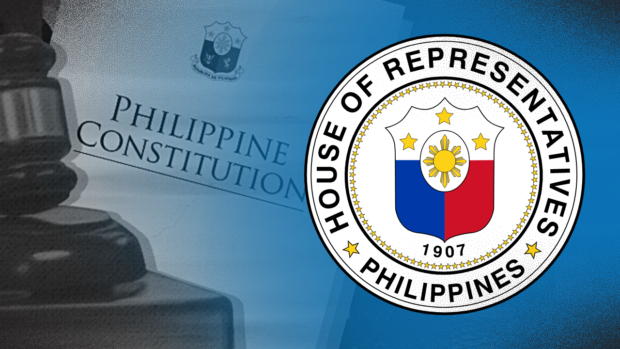‘Parliamentary courtesy’ urged in charter change word war

INQUIRER FILE PHOTO
MANILA, Philippines — Veteran lawmaker Cavite Rep. Elpidio Barzaga Jr. urged congressional leaders to “observe parliamentary courtesy” and stop an embarrassing word war over the House of Representatives’ push to purportedly amend economic provisions in the Constitution.
“There is a word war between the Senate president and the House, which is embarrassing. We are veteran legislators. Whatever differences in opinion we have should be settled privately,” the 72-year-old Barzaga said in a statement on Saturday.
The representative, who has had four terms in the House and also four terms as Dasmariñas City mayor, said lawmakers should “observe parliamentary courtesy” even when they have differing opinions.
He cited Senate President Juan Miguel Zubiri’s claim linking the delays in the approval of implementing rules and regulations for three laws on foreign investments to justify the representatives’ desire to amend the constitution.
Apart from saying that the charter change (cha-cha) proposal did not have the support of at least 18 senators, Zubiri suggested that moves to amend the Constitution should only follow the implementation of the recently passed Public Service Act, Retail Trade Liberalization Act, and Foreign Investment Act.
Article continues after this advertisementZubiri’s remark spurred evidently angry words from Speaker Martin Romualdez and Cagayan de Oro City Rep. Rufus Rodriguez, chair of the House panel on constitutional amendments.
Article continues after this advertisementTask of the executive
Barzaga agreed with Rodriguez that the formulation of a law’s implementing rules is the task of the executive department.“The issuance of the implementing guidelines of the three laws is the act of the executive, independent of the action of the House and also of the Senate,” he said.
Barzaga said lawmakers from both chambers should “sit down and privately settle” their differences instead of quarreling in public.
The Cavite lawmaker, however, also took a swipe at senators who have expressed, at various times, their opposition to Cha-cha.
Citing “political analysts,” Barzaga suggested that a majority of senators probably opposed Cha-cha because of the possibility that the constitutional conventional proposed by the House would also change political provisions in the constitution.
“We hear from media and analysts that when we become a unicameral legislature, majority of senators won’t be able to win in their respective districts,” Barzaga said in Filipino over the radio program of Surigao del Norte Rep. Robert Ace Barbers on Friday.
“I really do not know whether this is true or not but perhaps this is one of the apprehensions,” Barzaga noted.
Aside from the tacit admission, political amendments are also possible under the House measure, there is also no provision in the proposed Resolution of Both Houses No. 6 expressly limiting amendments to economic provisions.
Ease economic restrictions
Neither are there provisions that would nullify political amendments, which could also include the lifting of term limits on elected officials.
Still, Barzaga insisted that the proposed constitutional convention was only meant to ease the constitution’s economic restrictions, possibly including land ownership, which the Constitution reserves for Filipino citizens only.
Barzaga said the House wants to save money by holding the election of the constitutional convention delegates simultaneously with the barangay and youth elections in October this year. “If we will have separate elections in order to determine who shall be the constitutional convention delegates, that will be more expensive and our people and critics will question that,” Barzaga said.